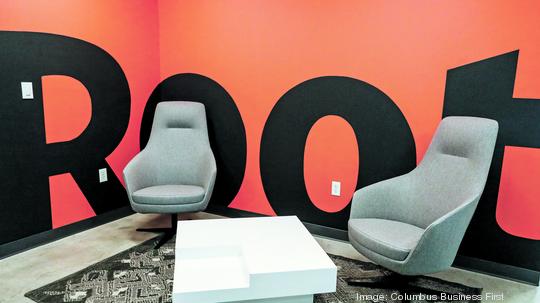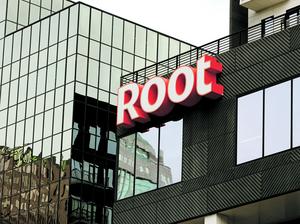
Root Inc. executives laid out a two-year plan to swing to profits without the need to take on outside capital such as additional debt or issuing shares.
The parent of Root Insurance Co. (Nasdaq: ROOT) slashed administrative expenses and reduced its losses on auto insurance claims vs. premiums in a bad year for the property and casualty industry, co-founder and CEO Alex Timm said in reporting fourth-quarter and year-end results Thursday.
"We did this through the worst inflationary environment in auto insurance in decades," Timm said in the webcast. "This has positioned the company to achieve profitability with the capital we have."
CFO Rob Bateman echoed the phrase, "achieve profitability with the capital we have" in his prepared remarks.
The Columbus-based all-digital insurer ended the year with $559 million in cash – aside from the reserves required by insurance regulators. The company used $211 million in cash for operating activities, down from $403 million in 2021.
The company expects to halve cash burn again this year, Bateman told analysts, which stretches the remaining pot.
"What that has allowed us to do is reset the company," Timm said.
In response to an analyst question on the recorded call, Bateman confirmed Root's projections that cash burn will "bottom out" in two years, meaning a turn to positive cash flow.
Executives were not available for interviews.
The company had 2022 revenue of $311 million, a 10% decline from the prior year, and cautioned that a strategy change will continue to shrink the top line this year. In 2022 it cut net losses by 43% to $298 million, down from $521 million the prior year, beating analyst consensus.
Root took several steps to stanch losses: It raised rates several times, tightened underwriting so it was signing less risky drivers, cut 500 jobs over two rounds in January and November, shrank office space and trimmed other expenses.
The company sees additional ways to cut operating expenses without affecting staff this year, Bateman said.
Labor shortages, supply chain disruptions and inflation raised the cost of repairing and replacing cars last year, according to a quarterly industry report by the Insurance Information Institute and Milliman.
Analysts in that report projected a "net combined ratio" of 111 across personal auto carriers for 2022. That measure takes into account both claims losses and other expenses compared with premiums. That is 10 points worse than in 2021.
Root's combined ratio is much higher, because it's a startup that hasn't reached the scale for premiums to cover all expenses – but its trajectory was the opposite. Its net combined ratio dropped to 195 from 261 over the year, according to its annual report.
The more direct measure of claims losses to premiums improved to 81% from 89% over the year, as the company works toward a long-term goal of 65%.
Policy quote partnerships key to strategy
Root is focusing more on partnerships where it offers its policies white-labeled under other brands, embedded in the digital checkout process at a moment when consumers need to cover an auto. The first was with online used car seller Carvana.
The Carvana policies grew to 41% of new premiums in the fourth quarter, and are more profitable than others, Root's shareholder letter said.
However, Carvana (Nasdaq: CVNA) has troubles of its own. It entered the year with investors and analysts worried it could file bankruptcy, reports sister publication Phoenix Business Journal. The Phoenix-based company also released its 2022 results Thursday, reporting a $1.6 billion loss.
The number of vehicles sold declined for the first year in Carvana's history, the Phoenix paper reported, and the earnings report greatly disappointed Wall Street.
Root has recently signed "a national digital financial services company" as a second customer for an embedded insurance product, according to its shareholder letter. Executives did not name the partner, but said in the call that a third deal is expected soon.
While the company focuses on that distribution method instead of direct-to-consumer sales, existing policies are expiring faster than new ones are added.






